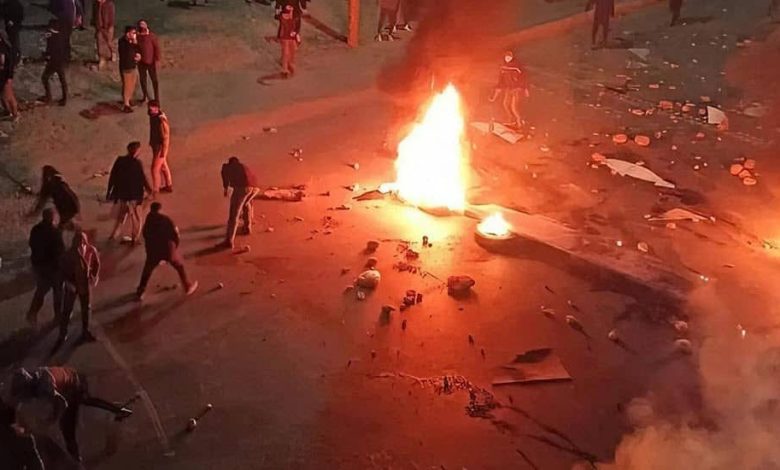The Undeniable Facts That Iran Uprising Revealed

iran-uprising-night-fire-e1671097968748
Written by
Mehdi Oghbai
The major protests in Iran have entered their eighth month despite the regime’s severe crackdown. By continuing their struggle against all odds, Iranians have demonstrated their unwavering determination to achieve regime change at all costs. But that’s not all.
The ongoing uprising revealed several undeniable facts about the regime, society, and role of Iran’s principal opposition, Mujahedin-e Khalq (MEK).
The continuation of protests despite authorities’ heavy quash laid bare the regime’s weakness and how these protests were organized. It also brought the regime’s absolute deadlock into the spotlight. The clerical regime has no solution for the country’s crises but to oppress the people who ask for their rights.
This oppression has increased society’s restiveness, causing uprisings to follow each other since 2018. Moreover, the prospect of the regime’s downfall forced the international community to consider this option, resulting in more pressure on the regime.
The nationwide uprising revealed the regime’s weakness, debunking its “regional power” rhetoric. In fact, each uprising since 2018 has considerably weakened the ruling theocracy. However, the demonstrations that erupted following Mahsa Amini’s brutal and tragic murder in September were a turning point causing the regime to lose whatever was left of its waning legitimacy outside the country. The slogans targeting the regime’s supreme leader, Ali Khamenei, such as “Death to Khamenei” and “Khamenei you murder, we will bury you,” confirm this fact.
#Iran opposition MEK Resistance Units in Kashan march and chant anti-regime slogans to mark #IWD2023 #WomenForce4Changepic.twitter.com/Jq7Geq8zn9
— People's Mojahedin Organization of Iran (PMOI/MEK) (@Mojahedineng) March 8, 2023
Another fact is that Iran’s society is the hotbed of protests. The country’s financial calamity and social problems, created or exacerbated by the regime, have turned Iranian society into a powder keg. The regime’s days are numbered, and regardless of its ability to quash protests and momentarily quell society, anything could spark another uprising. The fire of dissent is still alit under the ashes.
Additionally, through their operations and campaigns, the MEK’s Resistance Units network inside Iran has been keeping this fire aflame.
The aforementioned facts confirm that the ruling theocracy is indeed at a strategic impasse; the situation will never be the same, and more extensive and deep uprisings are on the horizon. Khamenei’s schemes, such as tightening the mandatory veiling laws or launching chemical attacks against all-girl schools, can backfire. As Hannah Arendt said, “Violence can destroy power; it is utterly incapable of creating it.” Concerning Iran, it’s just a matter of when rather than if.
As the regime’s highest authority, Khamenei has proven he is willing and capable of committing any crime to stay in power. The absurd notions of “transition of power,” moderation, and hoping Khamenei’s Revolutionary Guards (IRGC) join people’s ranks will never happen. Khamenei has repeatedly said that taking a step back will result in his regime’s demise. In fact, authoritarian regimes oppress until their last days. As Vaclav Havel said, “Reform and dictatorship are incompatible, for a dictator is not interested in improving the lives of his people, but in controlling them.”
The ongoing uprising in Iran is also distinct because the regime has exhausted all tactics to divert it from its intended course. The regime would deflect the protests in the past by blaming problems on reformists or hardliners. However, the people have seen through this ruse with the slogan, “Reformists, hardliners; the game is over.” The regime also tried to promote support for the ousted Shah dictatorship to quell calls for democracy, but these efforts also failed.
March 14 – Tehran, #Iran
MEK Resistance Units in anti-regime protests.#IranRevolution pic.twitter.com/GsrdxtxsV1— People's Mojahedin Organization of Iran (PMOI/MEK) (@Mojahedineng) March 17, 2023
The revolution in the making in Iran also has proved that people want to establish a pluralistic, democratic, and secular republic and slogans such as “Down with the oppressor, be it the Shah or mullahs,” and “No monarchy, no [supreme] leader, democracy, equality,” confirm this fact.
With regime change on the horizon, the international community should change its approach beyond vocal support and condemnations of the regime’s crimes. Insisting on negotiations with the current regime is like betting on a dead horse in a race. Instead, the world community should increase pressure on the regime by blacklisting the IRGC as a terrorist entity and recognizing the people’s right to self-defense.

